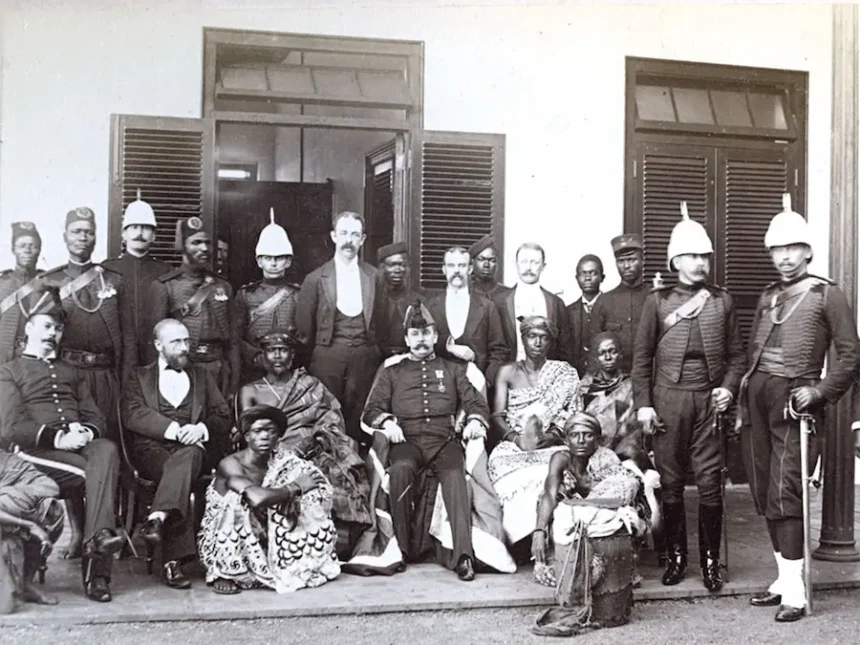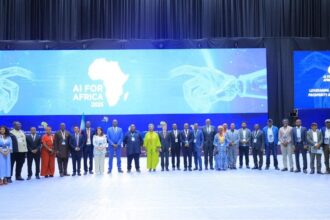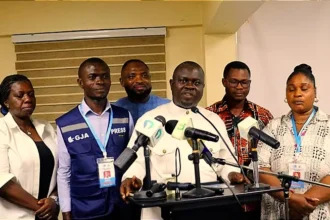In the heart of West Africa, where Ghana now stands, formal education traces its roots back to the 15th century, when European traders set foot on these shores.
Education was an exclusive privilege, reserved for the children of women married to Western traders, with a sole focus on teaching them the art of reading and writing. The primary objective behind this education was to nurture an educated class to support and manage the colonial enterprise.
By 1882, Britain had firmly established itself as the colonial power in the region, further shaping the educational landscape. However, educational opportunities remained limited, and educational assessments emerged as the gatekeepers to accessing knowledge.
These assessments predominantly emphasized academic knowledge and proficiency in the English language. The results of these assessments played a crucial role in selecting students for higher education and coveted white-collar jobs. Astonishingly, the echoes of this historical practice still resonate within Ghana’s modern education system.
Colonial Legacy and Educational Assessment in Ghana
Influence of Colonization
The colonial legacy of assessment continues to cast its shadow over Ghana’s current testing practices. It upholds imperialist notions of merit and achievement. The West African Examinations Council, established by the British in 1950, is responsible for mandated tests in anglophone West African countries, including Ghana.
Today, Ghana’s assessment system still heavily relies on this framework, as Western universities require exceptional scores on these tests for undergraduate admissions. Moreover, the prevalence of high-stakes examinations persists, driven by the pressure to meet global education standards through international comparisons of student achievement.
Political Accountability
In Ghana, the quality of education is often measured by the number of students who pass the nationally mandated testing. Student assessments serve as political performance indicators and tools for public policy and political accountability. For instance, in the past five years, the government has allocated approximately US$5.8 million to purchase past exam questions to aid students.
Notably, teachers are also held accountable for students’ performance in these national exams. Consequently, they tend to prioritize exam preparation over actual learning. This shift in focus detrimentally impacts both educators and students, as genuine learning takes a backseat.
The Challenge of Equity and Access
Free Schooling
In an attempt to promote inclusive and equitable access to education while increasing enrollment rates, Ghana introduced a free senior high school policy in 2017. However, disparities in access to and enrollment in secondary education still persist, especially among children from different socioeconomic backgrounds.
Critics argue that the policy was hastily implemented for political reasons, without a thorough consideration of its long-term implications and costs. Others contend that it primarily serves as a mechanism to boost secondary school enrollment.
Importantly, its effectiveness hinges on a student’s performance in the Basic Education Certificate Examination, which also determines their placement in one of the secondary school streams through a computerized system. Consequently, the policy predominantly benefits students who pass the exam and qualify for placement, placing those from lower socioeconomic backgrounds or rural areas at a disadvantage.
The Influence of High-Stakes Exams
The high-stakes nature of large-scale assessments in Ghana’s education system fosters disengagement among disadvantaged students and teachers alike. The emphasis on exams overshadows the intended learning goals of teaching and other forms of assessment. The evaluation of teachers and schools is closely tied to student performance in tests, compelling teachers to narrow their curriculum to what is tested. This has several detrimental consequences:
- Creativity and meaningful learning are compromised.
- Some students struggle to grasp the curriculum content.
- Less teaching time is allocated to students with special needs.
- Unethical practices may emerge to ensure students pass.
Students from low socioeconomic backgrounds and those with special learning needs often find themselves marginalized by these assessments. Ultimately, the results of large-scale assessments segregate students into categories of secondary schools, based on the allocation of limited resources.
Future Directions and Policy Implications
The principle of fairness dictates that a student’s progression should not hinge solely on a single test score, as currently practiced in Ghana. To align with the country’s equity goals, the education system should consider a diverse range of indicators and assessments to gauge student learning.
The educational access policies of Ghana present an opportunity to reform assessments, liberating them from their colonial origins and fostering high-quality teaching and student learning. Reformed policies should strike a balance between various forms and purposes of assessment while providing clear teacher guidelines and professional development opportunities.
Transforming Ghana’s testing culture into one that supports meaningful learning and equitable educational outcomes is undoubtedly a formidable challenge. However, it is an indispensable one if the country aims to achieve equitable education for all, unlocking the potential of every student regardless of their background.









